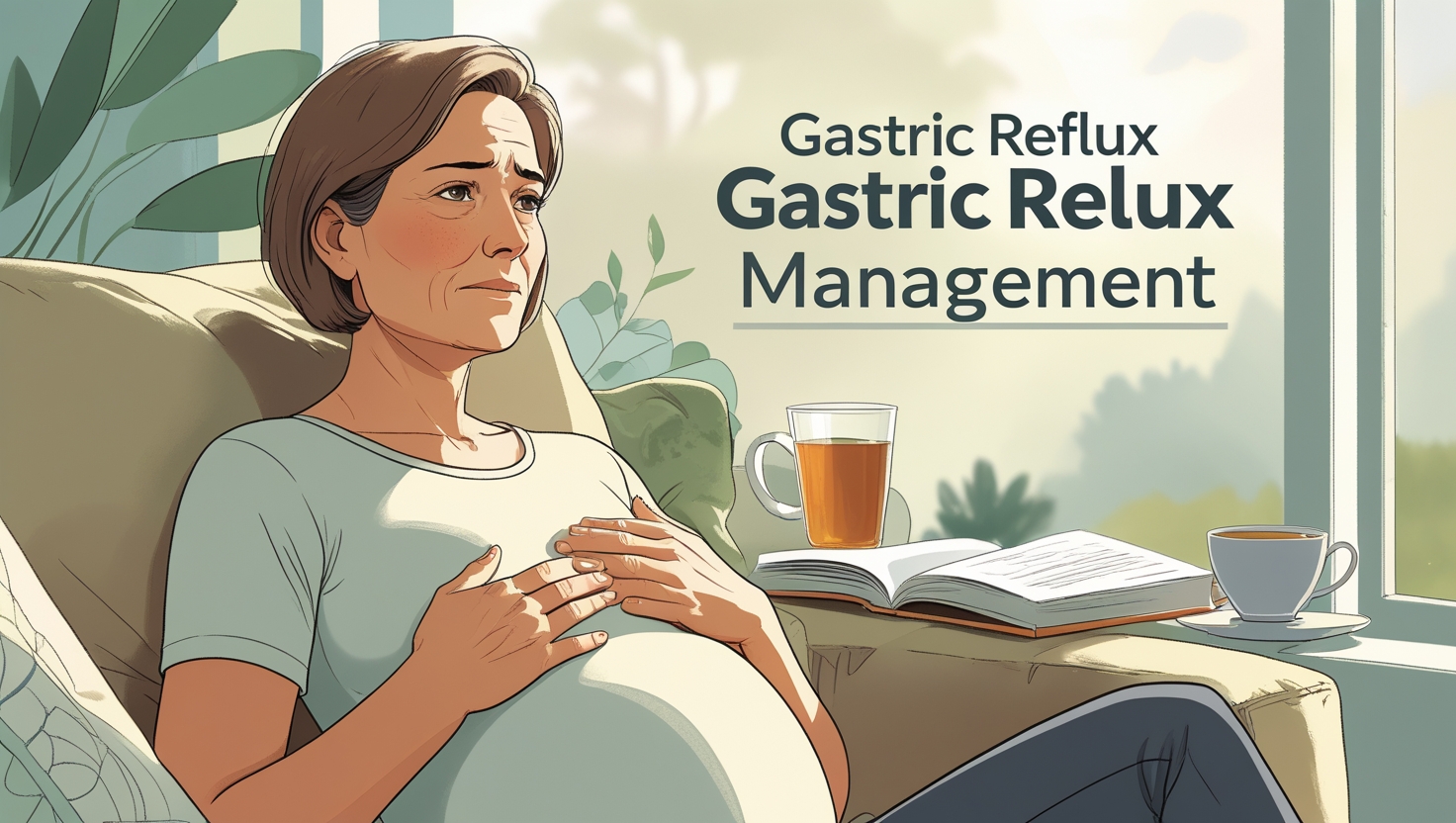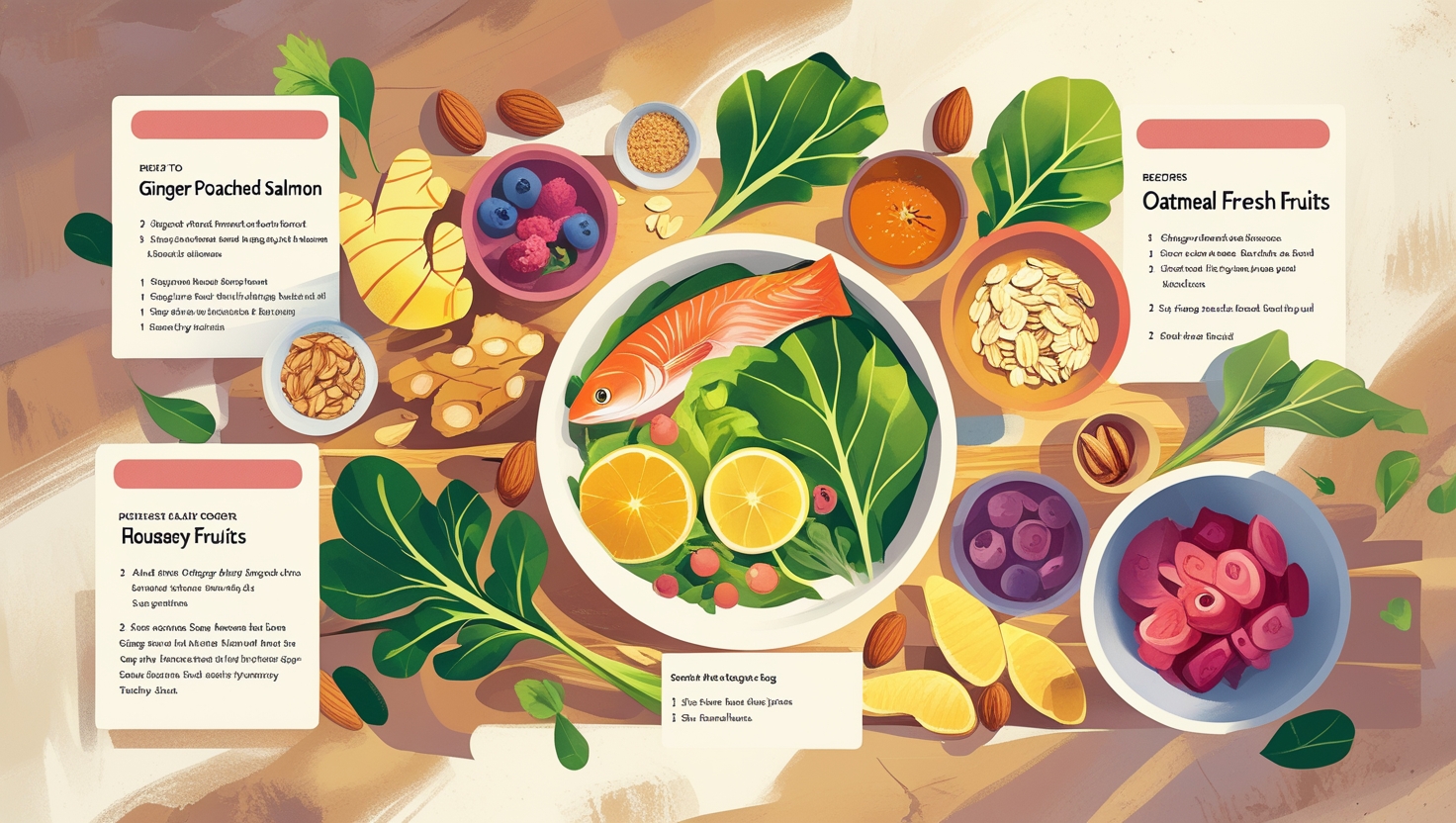Gastric Reflux Symptoms: Complete Guide to Recognition, Causes & Relief Options

Gastric reflux affects millions worldwide, yet many people struggle to identify its varied symptoms. From that familiar burning sensation to unexpected respiratory issues, understanding these warning signs can be your first step toward effective management and lasting relief.
What Exactly Are Gastric Reflux Symptoms?
Gastric reflux symptoms—oh boy, where do we even begin? GERD (Gastroesophageal Reflux Disease) isn't just about that burning sensation you feel after downing a spicy burrito. It's a complex condition that can manifest in ways you'd never expect, affecting everything from your throat to your sleep patterns.
The thing is, gastric reflux occurs when stomach acid travels backward into your esophagus, creating a symphony of uncomfortable sensations. Think of your lower esophageal sphincter (LES) as a one-way gate that's supposed to keep stomach contents where they belong. When this muscular ring weakens or relaxes inappropriately, you're in for a world of discomfort. According to the American College of Gastroenterology, approximately 60 million Americans experience heartburn at least once a month, with 15 million dealing with daily symptoms.
The Classic Gastric Reflux Symptoms You Can't Ignore
Heartburn: The Star of the Show
Let's face it—heartburn is the poster child of gastric reflux symptoms. That burning, gnawing sensation in your chest? Yeah, that's your esophagus crying for help. It typically strikes 30 to 60 minutes after eating, especially when you've indulged in trigger foods like chocolate, citrus, or that extra cup of coffee.
But here's the kicker: heartburn can masquerade as chest pain, leading many folks to panic about heart problems. The key difference? Reflux-related chest pain often worsens when lying down or bending over, while cardiac chest pain usually doesn't change with position changes.
Regurgitation: When Food Makes an Unwelcome Return
Regurgitation sounds fancy, but it's basically your stomach contents staging a rebellion. You might taste sour or bitter liquid in your mouth—definitely not pleasant during a business meeting! This symptom often accompanies heartburn and can be particularly troublesome at night.
Some people describe it as a “wet burp” or feeling like food is coming back up their throat. Unlike vomiting, regurgitation typically happens without the forceful contractions and nausea. It's more like your stomach is saying, “Hey, remember that sandwich from two hours ago? Here it is again!”
The Sneaky, Less Obvious Gastric Reflux Symptoms
Respiratory Issues That'll Surprise You
Here's where things get interesting—and frankly, a bit scary. Gastric reflux symptoms can extend far beyond your digestive system, wreaking havoc on your respiratory health. Chronic cough, wheezing, and even asthma-like symptoms can all be signs of reflux disease.
Dr. Jamie Koufman, a leading expert in reflux research, notes that “silent reflux” can cause voice changes, chronic throat clearing, and persistent cough without the classic heartburn symptoms. The stomach acid can reach your vocal cords and airways, causing inflammation and irritation. It's like having a tiny fire extinguisher going off in all the wrong places.
Sleep Disruption and Nighttime Symptoms
Ever wake up choking or gasping for air? Nocturnal reflux is no joke, folks. When you lie flat, gravity can't help keep stomach acid where it belongs, leading to some seriously disrupted sleep patterns. Many people report waking up with a sore throat, hoarse voice, or that metallic taste that makes you want to brush your teeth immediately.
Sleep-related gastric reflux symptoms create a vicious cycle: poor sleep weakens your immune system and stress response, potentially making reflux worse. Plus, who wants to deal with burning chest pain at 3 AM? Nobody, that's who.
Red Flag Gastric Reflux Symptoms: When to Worry
Signs That Demand Immediate Attention
While most gastric reflux symptoms are manageable with lifestyle changes and medication, some warning signs require immediate medical attention. We're talking about symptoms that could indicate serious complications:
- Difficulty swallowing (dysphagia)
- Unintentional weight loss
- Persistent vomiting with blood
- Severe chest pain accompanied by shortness of breath
- Black, tarry stools
These symptoms might signal complications like Barrett's esophagus, esophageal strictures, or even esophageal cancer. Don't mess around with these—get medical help ASAP.
The Difference Between Occasional Reflux and GERD
Occasional heartburn after that extra-large pizza? Totally normal. But when gastric reflux symptoms occur more than twice a week and start interfering with your daily life, you might be dealing with GERD. The distinction matters because chronic reflux can lead to serious complications if left untreated.
GERD affects approximately 18.1-27.8% of adults in North America, according to research published in Gastroenterology. That's a lot of people dealing with chronic symptoms that could be better managed with proper treatment.
Lifestyle Factors That Trigger Gastric Reflux Symptoms
Foods That Fan the Flames
Let's talk trigger foods—those culinary villains that send your symptoms into overdrive. While triggers vary from person to person, some common offenders include:
- Citrus fruits and juices
- Tomato-based products
- Spicy foods
- Chocolate (sorry, chocolate lovers!)
- Caffeine and alcohol
- Fatty or fried foods
- Peppermint and spearmint
The weird thing about trigger foods? They don't affect everyone the same way. Your friend might chug orange juice without issues while you're reaching for antacids after a single sip.
Habits That Make Symptoms Worse
Beyond food choices, certain habits can exacerbate gastric reflux symptoms. Eating large meals, lying down immediately after eating, wearing tight clothing, and smoking all contribute to increased reflux episodes. Even your posture matters—slouching can put extra pressure on your stomach, encouraging acid to travel upward.
Stress is another sneaky culprit. When you're stressed, your body produces more acid and slows digestion, creating the perfect storm for reflux symptoms. It's like your digestive system is staging a protest against your hectic lifestyle.
Effective Management Strategies for Gastric Reflux Symptoms
Lifestyle Modifications That Actually Work
Good news—you don't have to suffer in silence! Many gastric reflux symptoms respond beautifully to lifestyle changes. Elevating your head while sleeping, eating smaller meals, and avoiding trigger foods can make a world of difference.
Weight management plays a huge role too. Excess weight increases abdominal pressure, pushing stomach contents upward. Even modest weight loss can significantly reduce symptom frequency and severity. The key is finding sustainable changes you can stick with long-term.
When Medication Becomes Necessary
Sometimes lifestyle changes aren't enough, and that's okay! Various medications can help manage gastric reflux symptoms:
- Antacids: Quick relief for occasional symptoms
- H2 receptor blockers: Reduce acid production for longer periods
- Proton pump inhibitors (PPIs): The heavy hitters for severe symptoms
- Prokinetics: Help speed stomach emptying
Each medication class works differently, and what works for your neighbor might not work for you. It's all about finding the right approach with your healthcare provider's guidance.
Frequently Asked Questions About Gastric Reflux Symptoms
Q: Can gastric reflux symptoms cause anxiety? A: Absolutely! The chest pain and breathing difficulties associated with reflux can trigger anxiety symptoms. Plus, chronic discomfort can contribute to overall stress levels.
Q: Are gastric reflux symptoms worse during pregnancy? A: Yes, pregnancy hormones relax the LES, and the growing baby puts pressure on the stomach. Many pregnant women experience reflux symptoms, especially in the third trimester.
Q: Can children have gastric reflux symptoms? A: Definitely. Pediatric GERD is more common than you might think, though symptoms may differ from adults. Watch for feeding difficulties, chronic cough, or frequent spitting up.
Q: Do gastric reflux symptoms always include heartburn? A: Nope! “Silent reflux” can occur without traditional heartburn symptoms, manifesting instead as chronic cough, voice changes, or throat irritation.
Q: Can stress alone cause gastric reflux symptoms? A: While stress doesn't directly cause reflux, it can worsen symptoms by increasing acid production and affecting digestive function.
Final Thoughts on Managing Your Gastric Reflux Journey
Understanding gastric reflux symptoms is like having a roadmap for your digestive health journey. Whether you're dealing with occasional heartburn or chronic GERD, recognizing the signs and knowing your options empowers you to take control.
Remember, everyone's reflux story is different. What triggers your symptoms might not affect someone else, and vice versa. The key is patience, persistence, and working with healthcare professionals who understand the complexity of this condition. Don't let gastric reflux symptoms control your life—with the right approach, relief is absolutely possible.






